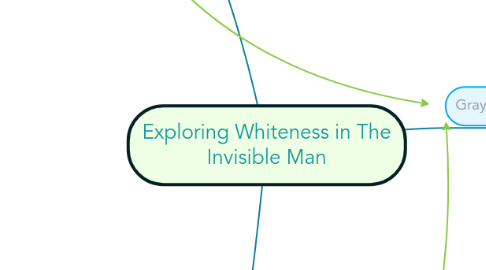Exploring Whiteness in The Invisible Man
por Ebony-Crystal Riggs


1. Whiteness (9)
1.1. "Then some of the milling men pushed me up against him and suddenly a mass of whiteness was looming two inches from my eyes; it was only his face but I felt a shudder of nameless horror. I had never been so close to a white person before."
1.1.1. s
